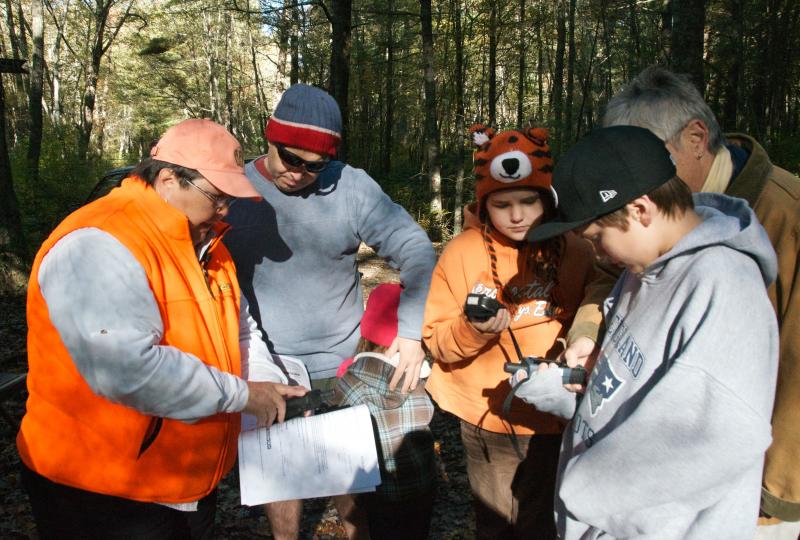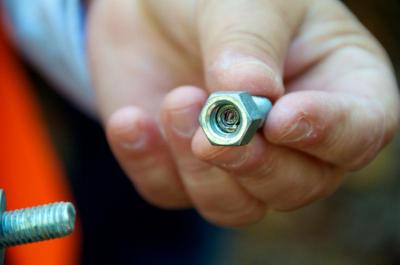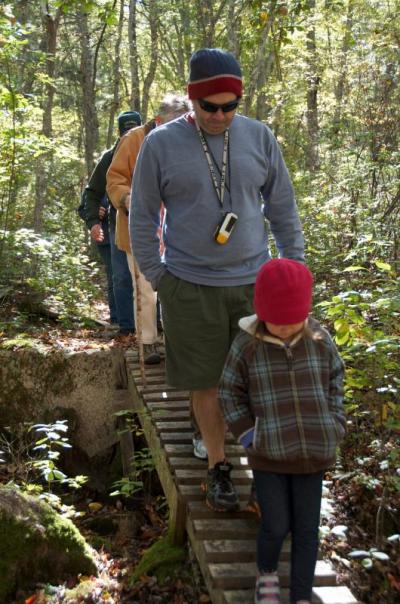Caching craze: Treasure hunters take to Marion woods
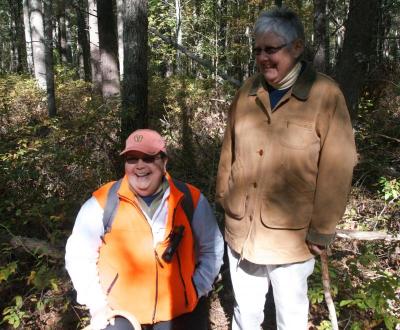
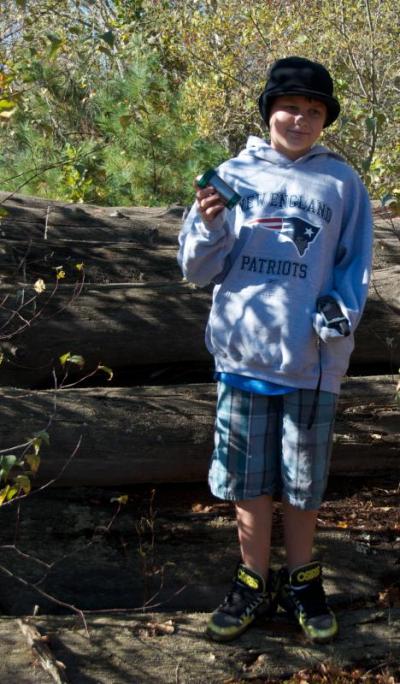
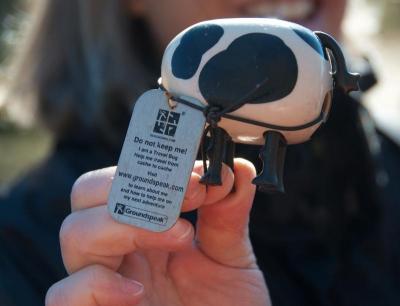
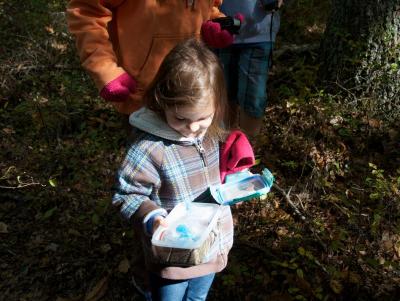
Geocachers are kind of like spies. There’s an international network of them. They hide messages and objects in obscure places. They’re often known by their codenames. And sometimes they get into dangerous situations.
On Saturday, October 13, Jo-Anne Gallant and Diane Camacho lead a geocaching walk sponsored by the Sippican Lands Trust in Marion.
Geocaching is a free, global treasure hunting game where members try to find containers, or geocaches, left by other members using a GPS or smartphone.
Gallant and Camacho started geocaching in 2008. “My neighbor took us out with a GPS and we were hooked,” said Gallant.
Caches can be as small as a pen top and may be hidden under a log in the woods or a parking lot light pole at Stop and Shop.
“You guys have probably walked by caches and you didn’t know it,” said Camacho.
Geocachers signup on www.geocaching.com where there are listings of caches with their coordinates. Geocachers can then find the general location of the cache, usually within 15 feet.
Camacho said finding the caches takes “geosense.”
“You use common sense and you start to figure out where things will be,” she said.
In addition to geosense, the treasure hunters have an entire vocabulary dedicated to geocaching. BYOP means bring your own pencil for writing your name inside the cache. DNF stands for did not find. Muggle is a term reserved for the non-geocacher.
Despite the secret lingo, any muggle with a GPS can become a geocacher.
On Saturday, Gallant and Camacho helped the group find geocaches along the bogs and woods of the Lands Trust’s White Eagle property located off of Parlowtown Road.
While the most difficult part of the hunt was crossing a narrow bridge, geocaching can get dangerous.
“I fell out of a tree and tore my ACL on one cache,” said JoAnn Watson.
But an injury didn’t slow her down much. Watson and her husband have hunted down caches in Trinidad, Honduras and the Galapagos Islands.
With at least one million caches around the world, geocachers often end up traveling to new locales in search of the next find.
“You do all the caches in your area, then you have to travel,” said Gallant. “After retiring, it keeps me active mentally and physically.”
Caches come in different genres, too. Some require solving a puzzle and others lead geocachers along scenic routes.
There is also geocaching swag in the form of small gifts, tokens and other items left in the container.
“There are tons of us who love doing it,” said Camacho. “I only wish I had discovered it earlier.”



